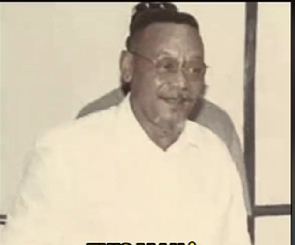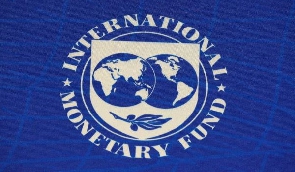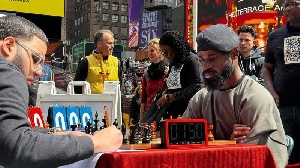Opinions of Saturday, 15 December 2001
Columnist: Adu-Asare, R. Y
Why NDC's Internal Contradictions, Incompatibilities Threaten its Survival
There is a significant reason why a rift appears to exist in the core leadership of the National Democratic Congress, NDC, with Jerry Rawlings out office. The fact that this rift has not surfaced until this late stage in the political game playing is even surprising. Survival of the Party is threatened less than one year after losing power.
As for the reason, it is simple: Obed Asamoah, Kojo Tsikata and Kofi Awonoor, on the one side and Jerry Rawlings, Nana Konadu Agyemang and their Johnny-come-lately supporters, on the other, have no shared similarities in political thinking. The political commitments of both sides also are incompatible.
It does not need any stretch of imagination or rigorous analysis to know that the absence of uniformity of thinking among the leadership of any organization leads to lack of internal cohesiveness and weakened structural capacity. Evidence of differentiation of political thought within NDC’s leadership follows below.
Since before independence on March 6, 1957, Ghana’s political landscape has been characterized by two parallel streams of thinking. One stream follows the path charted by the Danquah-Busia direction while the other is that of Kwame Nkrumah.
Until the NDC matures into a formidable third stream with its own content of political thinking, the Danquah-Busia and Nkrumah paths are likely to dominate the Ghanaian society into the unforeseeable future. Simply put, the NDC remains an aberration, for the present.
As is well known, the Danquah-Busia political thought is embodied in the United Party, UP, forerunner of the incumbent political party in power, the New Patriotic Party, NPP. The Nkrumah path was built on the foundations of the Convention Peoples Party, CPP.
For the purpose of this article, the picture portrayed above becomes important because Ghanaian politicians and private citizens who remain true to their economic and political convictions about the trajectory and direction of society would hardly see eye-to-eye and they have not. Individuals who jump from either the Busia or Nkrumah camp to the other have been those that may qualify to be described as political prostitutes and opportunists.
Many of the individuals who, today, dominate the active segment of the NDC, especially those that support Jerry Rawlings and Nana Konadu Agyemang, fit into the political opportunists mold. Indeed, it is defensible to state, for good reasons, that Jerry Rawlings and Nana Konadu have been the leading opportunists in the annals of Ghana’s short political history.
Why, you may ask?
Jerry Rawlings and Nana Konadu Agyemang are crass opportunists because, compared to Obed Asamoah, Kofi Awonoor and Kojo Tsikata, they do not appear to have evidence of a track record that could have made it possible for them to organize a political party in Ghana, from scratch. I have no question in my mind about this stated caveat.
In spite of all their faults, Obed Asamoah, Kofi Awonoor and Kojo Tsikata, among others, have been Nkrumahists to the marrow of their bones. Their greatest mistake has been that they created political opportunities and groomed Jerry Rawlings to be the ‘fall guy’. It can be surmised that Nana Konadu Agyemang urged her husband to hijack the opportunities deferred to her husband. Most married men live half an existence when they secede substantive part of their thinking and actions to their female partners.
Kofi Awonoor, as a young university graduate, started life working for Kwame Nkrumah as a writer for the erstwhile Africa Review magazine. At the time of the 24th February, 1966, coup d’etat, Awonoor was a close confidant of John Tettegah, the maverick General Secretary of Ghana Trade Union Congress at the time. John Tettegah, as all CPPists knew, was going to be the sure successor to Kwame Nkrumah as the Secretary-General of the CPP, a position that would have made him the Party’s only candidate for president in a one party state.
Don’t let any Ghanaian make a mistake, Kojo Tsikata has been one of Ghana’s best trained soldiers. He endeared himself to Kwame Nkrumah by the courage and bravery he showed in the Congo conflict of 1960. As a young Lieutenant, Tsikata, as part of the Ghana peacekeeping contingent to the Congo, was the first military officer to enter besieged Katanga. With the rank of Captain, Nkrumah appointed Tsikata to be the Commanding Officer of a new military barracks at Ho, in the Volta Region.
For a historical note, Tsikata was in Angola at the time of the 24th February 1966 coup, helping Augustino Neto, militarily, to fight the Portuguese colonialists for independence. Neto who had lived in Ghana practicing medicine, had become Nkrumah’s friend. On April 17, 1967, soldiers from the Ho barracks launched an unsuccessful attack on the military regime that had ousted Nkrumah.
Obed Asamoah was part of the core leadership of the parliamentary opposition in Ghana’s Second Republic ruled by Busia’s regime, under the banner of the Progressive Party, PP, another outgrowth of the grandfather UP.
Brief details about Asamoah, Tsikata and Awonoor’s careers in the political realm are not meant to praise them but, rather, to show that they are no slouches in the political game playing in Ghana. This becomes significant relative to a recent statement by Jerry Rawlings that he has made two coups and therefore Asamoah cannot outwit him in the struggle for control of NDC’s leadership. That is a joke.
Jerry Rawlings knows fully well that it is Asamoah, Tsikata and Awonoor who made him what he has become in Ghana’s political history. In fact, Jerry Rawlings’ claim to have made two coups is fictional to a large extent. In the first instance, the event of June 4, 1979, which toppled the Acheampong-Akuffo regimes, cannot be taken as a coup d’etat, in the classical sense. In reality, the June 4, 1979 event should go down in history as a military insurrection, pure and simple.
Furthermore, let all Ghanaians know that Jerry Rawlings was not the architect of the June 4, 1979 military insurrection. It was planned and executed by some junior NCOs who lacked leadership and invited Rawlings and some other officers to lead them. That Rawlings became Chairman of the Armed Forces Revolutionary Council, AFRC, was by default infused by military adventurism. In fact, to my knowledge, Kojo Tsikata had a hand in the outcomes and configuration of the AFRC regime.
In addition, whereas Jerry Rawlings has been known as the coup maker and leader of the Provisional National Defence Council, PNDC, Tsikata was the real power behind the throne, so to speak. But for Tsikata’s capacity in security and intelligence matters the PNDC and Jerry Rawlings would not have lasted as long as Ghanaians endured them. It is reasonable to speculate that Asamoah, Awonoor and Tsikata tolerated Rawlings for as long as they did out of concern for the alternative.
In my own thinking, I suspect Asamoah, Awonoor and Tsikata, at this late stage, regret the decisions they made to have Rawlings as the titular head of the organization they had crafted.
One of the biggest mishaps that has befallen the CPP was the Hilla Limann interlude. But for internal wrangling and contradictions brought about partly by Limann’s ineptitude and lack of direction, Ghana’s Third Republic should have been the golden opportunity for the resurrection of the Nkrumahists. Part of the problem, here too, is that those who had been active organizers around Nkrumah’s thinking since the coup of 1966, including Awonoor and Tsikata, failed or refused to rally around Limann’s presidency. Could ethnicity have played a part in that turn of events?
In the end, what remains to be seen, going into Dec. 28, 2001 Congress of NDC, the first since losing power to the UPists, is whether those who had been CPPists or declared Nkrumahists, would consider returning to where their hearts are or would continue to follow their stomachs. By all indications, the long-term capacities of NDC remain only in the hearts and minds of Jerry Rawlings and Nana Konadu Agyemang who have been corrupted by absolute power.












